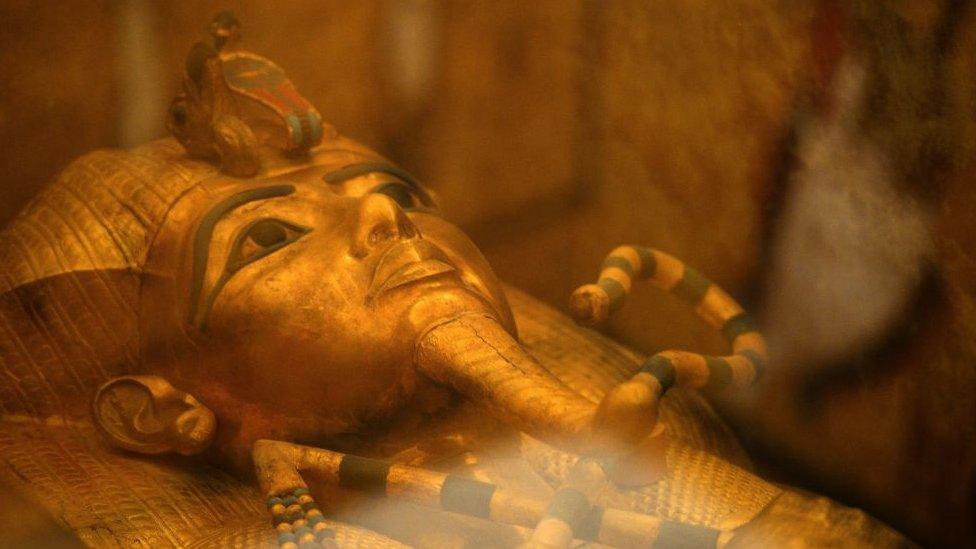Tutankhamun's golden coffin removed from tomb for very first time
- Published
- comments

Experts have begun restoring the coffin of Ancient Egypt's boy-king Tutankhamun for the first time since it was found in 1922.
It's almost a century since the tomb was discovered by British archaeologist Howard Carter.
It included about 5,000 artefacts and has since been untouched.
Now, though, the Egyptian Ministry of Antiquities has announced that it's being restored.
Who was Tutankhamun?
Tutankhamun ruled Ancient Egypt for around 10 years.
He is known as the boy pharaoh - or king - because he was in power when he was just nine years old.
He died around the age of 18, around the year 1324 BC.
He is famous because his tomb was discovered completely intact.
What's happening to his tomb?
Tutankhamun's sarcophagus (a box-like stone container) held not one, but three coffins to hold the body of the king.
Two of Tutankhamun's three coffins were made of wood, covered with gold sheet. But the innermost coffin is made from thick sheets of beaten gold and worth well over 拢1 million.
The coffin and the treasured collection of Tutankhamun's tomb are expected to be the centrepiece of the new Grand Egyptian Museum, which is due to open next year.
"The coffin has suffered a lot of damage, including cracks in the golden layers of plaster and a general weakness in all golden layers," said Eissa Zidan, who is in charge of the restoration of the coffin at the museum.
"The restoration work will take about eight months" he added.
- Published17 December 2014
- Published23 December 2015
- Published24 August 2012
- Published23 April 2016
